The number of Korean films featuring a woman’s perspective of social issues has risen in tandem with the Me Too movement against misogynistic treatment of women.

“Miss Baek” (2018), directed by Lee Ji-won, repeatedly failed to secure funding because its main character was a woman. The movie eventually broke even, thanks to unstinting support from female ticket buyers.
Feminism in Korea reached an inflection point in early 2018, when a female public prosecutor revealed that she had been sexually assaulted by a senior prosecutor and demoted to a provincial outpost from Seoul after she reported the incident to her superiors. The revelation unleashed a torrent of pent-up anger and frustration, thrusting Korea into the midst of the global Me Too movement against the mistreatment of women.
Much is implied about the fact that several Korean films on social issues as seen from a woman’s perspective premiered in 2018, as attention on the Me Too movement intensified. It was mere happenstance; the films had gone into production years earlier. Still, although an awakening was underway, there was no denying that the movie industry had been slow in shedding light on the reality of Korea’s patriarchal social system operating in an environment of emotional and physical abuse. On top of this, Korean actresses alleging sexual harassment and exploitation reinforced views that the industry was no different than any other in terms of misogyny and mistreatment.
Three years on, the nation still has a long way to go in addressing issues related to sexual violence and discrimination. But voices are no longer easily muffled. They are being heard with a greater resonance.
Issues at the Fore
The movies released in 2018 touched on an array of feminist issues. “Microhabitat” (director Jeon Go-woon) tackled income and housing problems experienced by single-household women; “Door Lock” (director Lee Kwon) depicted the terrors that women living alone can face in everyday life; “Herstory” (director Min Kyu-dong) highlighted the legal battles waged by World War II sex slaves of the Japanese military; “Miss Baek” (director Lee Ji-won) portrayed victims of misogynistic violence banding together to fight back; and “Youngju” (director Cha Sung-duk) questioned the identity of adults in our society through the eyes of a teenage girl.
The pairing of “me” and “too” implies that “I, too, am a victim and have lived in suffering environments, unable to speak out, and by revealing this fact, I will survive on the strength of solidarity with other victims.” This is the common perception underlying films on women’s social narratives, which has become a distinct trend in Korean cinema.
Devoted viewer support has buttressed the trend. “Miss Baek” is a prime example; solidarity among female viewers perpetuated its theatrical run. Calling themselves Sseubaekleo (“Miss Baek Lovers”), fans wrote letters to the director and tried to find ways to support the movie. Aiming to push the film past its commercial break-even point, they succeeded through repeated viewings, as well as by purchasing, though not using, tickets for off-peak time slots.
One 20-something female viewer who had seen the movie five times had tears in her eyes as she spoke about it. “I was anxious that the movie might be overlooked without reaching a lot of viewers… It was great to see the victims move forward with their lives without wallowing in self-pity.” Thanks to the support of such fans, “Miss Baek” sold 700,000 tickets and managed to pass its break-even point.
In “Miss Baek,” the lead character is a woman who refuses to ignore the suffering of a child victim of sexual abuse. Although this is an expected response, the movie exposed something to which society is often slow to react.
“The audience deeply empathized with the two main characters, who form a bond and manage to save each other, breaking out of the world they’ve been captured in,” said director Lee Ji-won. “People are deeply aware that we’ve waited a long time for a movie with a really strong female character.” The movie attested to the eruption of an ill-defined emotion – perhaps congealed feelings in the heart, or the energy that drives change – which remained condensed in the social environment.
In “Microhabitat,” the protagonist is a young woman named Miso. She is coping with sustaining affordable housing and employment, common problems of the 20-something cohort, and staunchly preserves the things that she likes. Thus, Miso gives up her rented room enjoying the cigarettes and whiskey that provide solace in her life. The film resonated with the audience as it presented one way of surviving without surrendering to circumstance.
Fellow characters also resist self-pity. They persevere while maintaining friendships and not becoming cynical about the requisites of living well. Although “Microhabitat” has a very different vibe compared to “Miss Baek,” the characters in both movies deal with the world similarly. The undertones of the social commentary of both movies are also evident. Recent statistics show that the rate of suicide among Korean women in their 20s has increased significantly compared to other age groups and to men, and that cases of treatment for depression have also climbed.
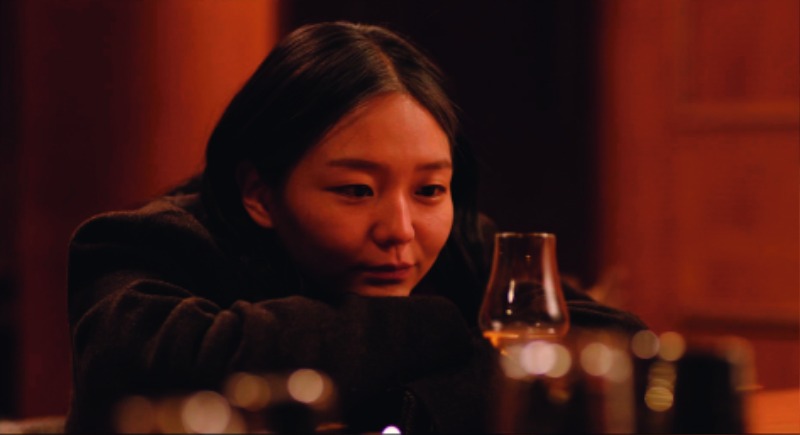
The cash-strapped protagonist in “Microhabitat” (2018), directed by Jeon Go-woon, gives up her rented room as she can’t stop smoking and drinking whiskey. The movie illuminates the values of Korean women in their 20s and 30s.
Raising Questions
The most remarkable woman-centric social narrative of 2019 was unquestionably “Kim Ji-young: Born 1982” (director Kim Do-young). It dealt with the discrimination a 30-something woman faces in everyday life and the misogyny permeating throughout Korean society.
The content is important, of course, but the value of the movie can be found in the way it brought to the surface the huge gap in perceptions between men and women.
The movie was based on a 2016 novel of the same title. Like the book, the cinematic version was polarizing. Expressing antipathy toward the film, some men claimed its “excessive exaggeration” of misogyny. On the other hand, most women said the mistreatment of women portrayed in the movie was understated compared to reality. Those who contended the film exaggerated reality tended to think the issues raised were the fault of a small number of wrongdoers. Those who felt the film softened reality believed the negative issues that it highlighted are embedded in society.
The novel and its movie adaptation raised the question of which way is best when it comes to resolving social issues and helping society progress and move forward. Compared to the novel, the movie is more euphemistic in manner, faithful to its role of gaining a positive reaction from a larger number of men and raising greater awareness of the issues at its heart.“A Bedsore” (director Shim Hye-jung), another feminist social narrative by a female director, is about an illegal foreign worker who is hired to look after an old woman who is unable to walk. Coincidentally, the movie was released as the coronavirus pandemic heightened interest in caregivers and other essential workers. The protagonist, Su-ok, receives the minimum wage but has to do all of the household chores, from cleaning to preparing meals for the husband.
Why is it that some men can’t even prepare their own meals? Why do all caregivers seem to be women? Are these women being properly compensated for their labor? It’s a fact that many elderly men in Korea don’t know how to prepare their own meals. It’s also a fact that in the current pandemic, the explosive increase in the burden of household work and childcare has mostly fallen to women. With the government preoccupied with preventative lockdown, any discussion of measures for women caregivers and essential workers among the socially disadvantaged remains on the backburner. Moreover, the pandemic has proved no exception in exacerbating the plight of migrant workers, who, even among the underprivileged, inevitably suffer first when a crisis occurs.
“A Bedsore” was produced in 2019, before the pandemic began, but ended up becoming the most welltimed independent movie of 2020. At just the right moment, it raised questions about problems so widespread that Korean society has become inured to them.Such questions were made possible by a critical awareness of social issues constantly observed from the standpoint of women.
It was the abode of a dauntless man who risked personal safety to tell the world of the Korean people’s resistance against imperialism.
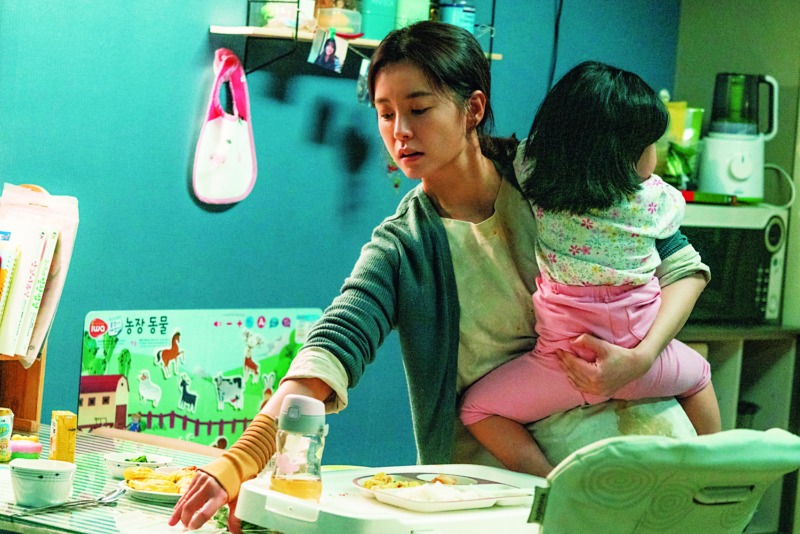
“Kim Ji-young: Born 1982” (2019), directed by Kim Do-young, stirred debate about gender discrimination by portraying a woman who is forced by her family and society to quit her job and become a stay-at-home mother.
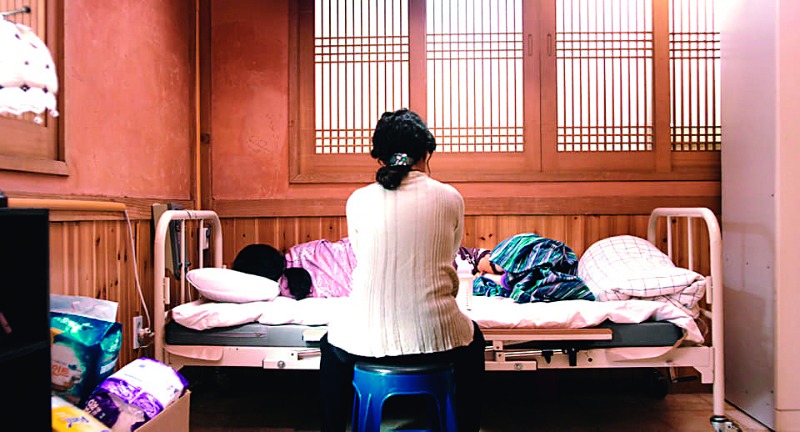
“A Bedsore” (2019), directed by Shim Hye-jung, explores patriarchy through a migrant female caregiver. It prodded audiences into thinking about how women in less desired jobs are taken for granted.
Empathy of Male Directors
As women’s narratives form a palpable undercurrent in Korean cinema, the gender of a director is no longer of great importance. Regardless of whether the directors are male or female, s telling women’s stories are attracting investment. Here are some notable films on feminist issues directed by men.
Herstory
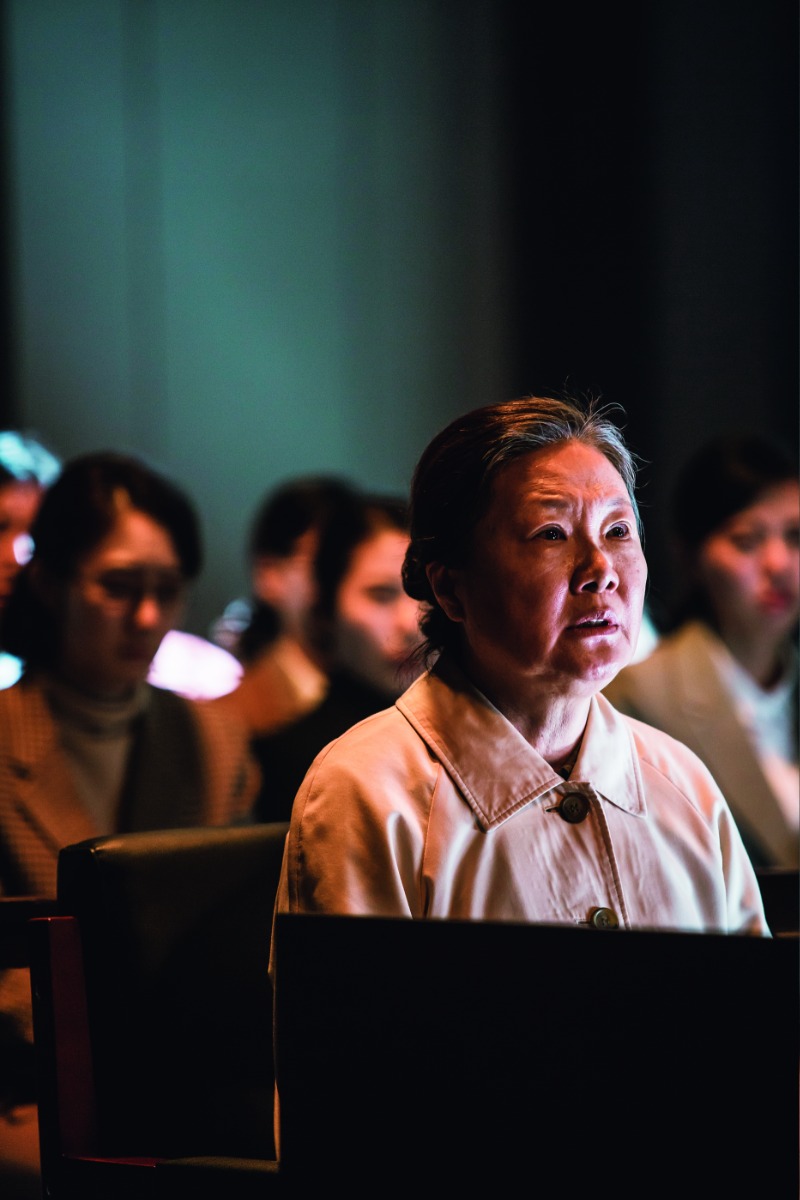
“Herstory” (2018) is based on a real-life court battle between World War II “comfort women” and the Japanese government. The court, for the first time, ruled that Tokyo should compensate the former sex slaves of the Japanese military. The title reflects director Min Kyu-dong’s stress on the women’s efforts, as well as their pride. The movie’s fans, self-proclaimed “Herstorians,” campaigned to secure theaters for screenings.
Three Sisters
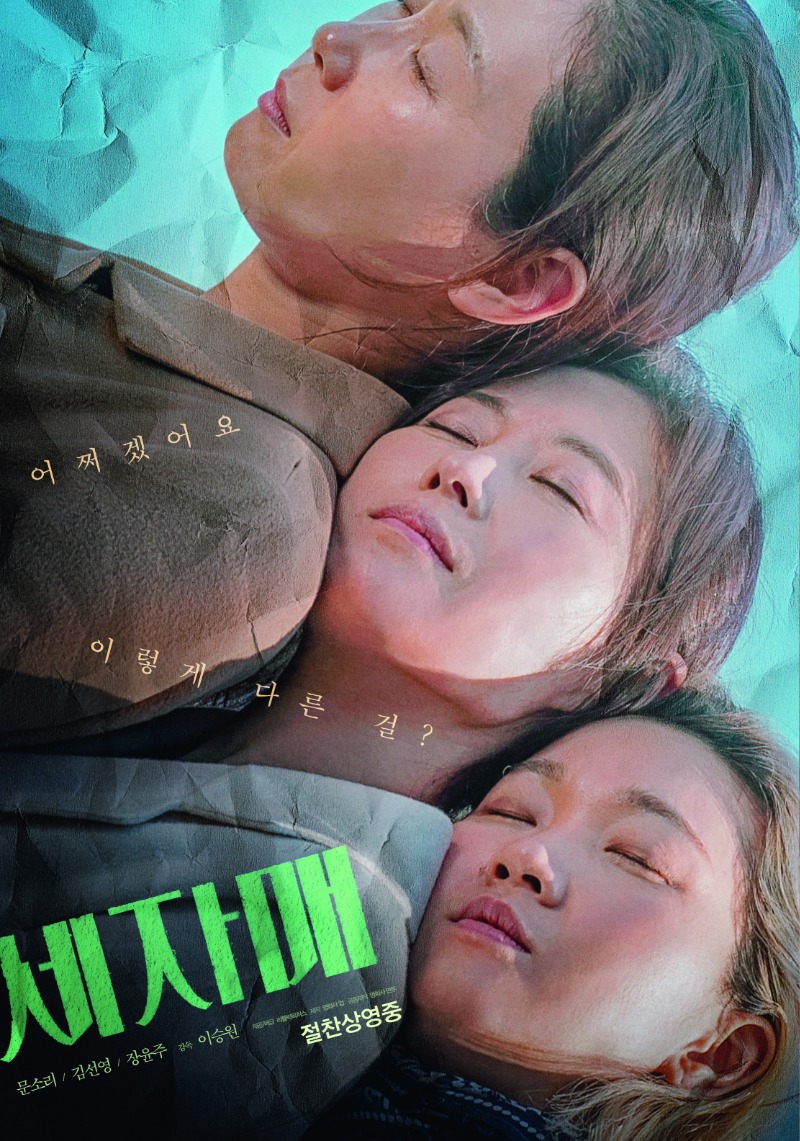
Director Lee Seung-won’s “Three Sisters” (2021) can rightly be acclaimed as a new discovery in Korean cinema. The three protagonists endure difficult situations, each carrying a personal trauma and all showing heartwarming sisterly love. The portrayals by three actresses – Kim Sun-young, Moon So-ri and Jang Yoon-ju – are riveting. At the 2021 Baeksang Art Awards, one of Korea’s most prestigious entertainment accolades, Kim won Best Supporting Actress and Moon was nominated for Best Actress.
Baseball Girl
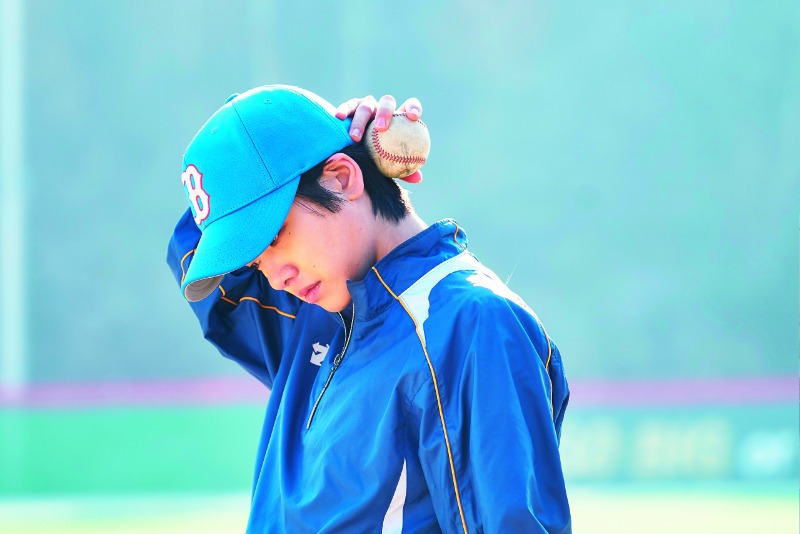
Director Choi Yun-tae’s 2020 production, “Baseball Girl,” raises the issue of gender awareness through a female baseball player who strives to enter the professional league. The protagonist, the only girl on her high school baseball team, dreams of playing professionally, but her family and others around her try to persuade her to give up the sport. She bites back, “How do others know what’s in my future? I don’t even know it myself…”
Moonlit Winter
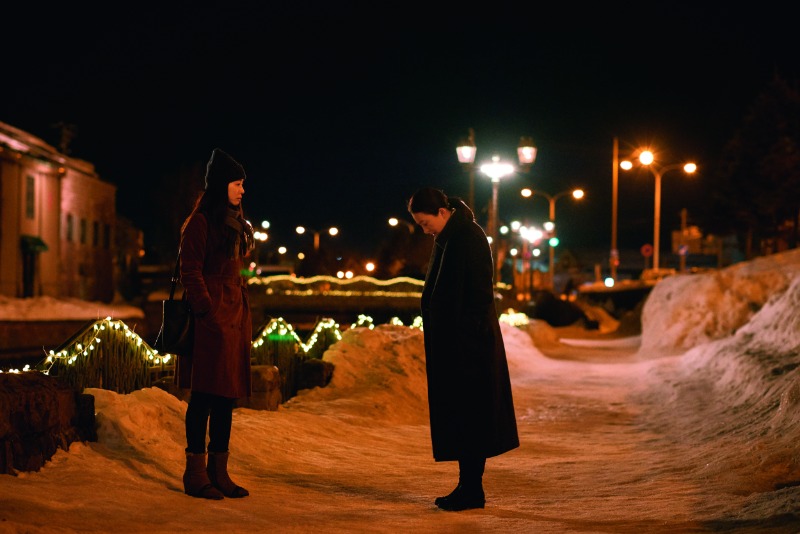
“Moonlit Winter,” directed by Lim Dae-hyung, premiered as the closing work of the 2019 Busan International Film Festival. It dealt with a subject never seen before in Korean cinema: a romance between middle-aged women. The film received several awards for its direction and screenplay. It was also invited to international film festivals, including the Asian Prism section of the 2020 Taipei Film Festival.
Door Lock
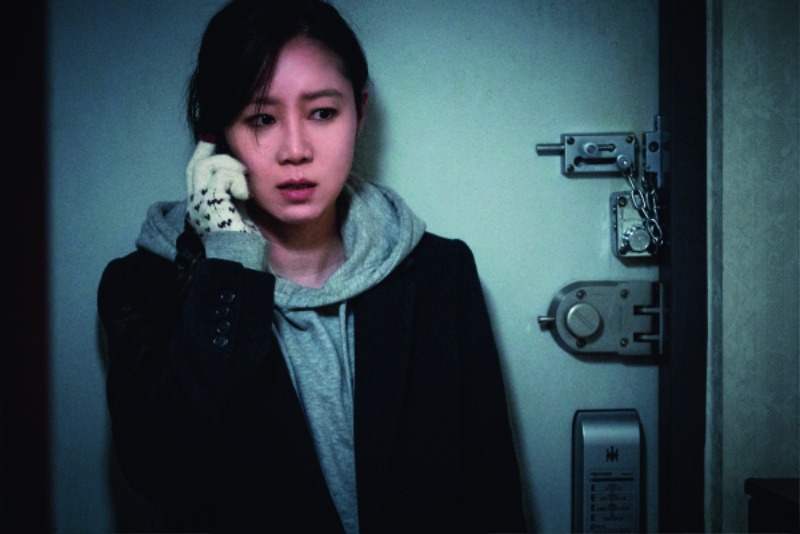
“Door Lock,” directed by Lee Kwon, depicts the vulnerability of women who live alone. In the film, a young woman returning home from work discovers that the covering of her apartment door lock has been lifted. The movie won the Thriller Prize at the 2019 Brussels International Fantastic Film Festival.